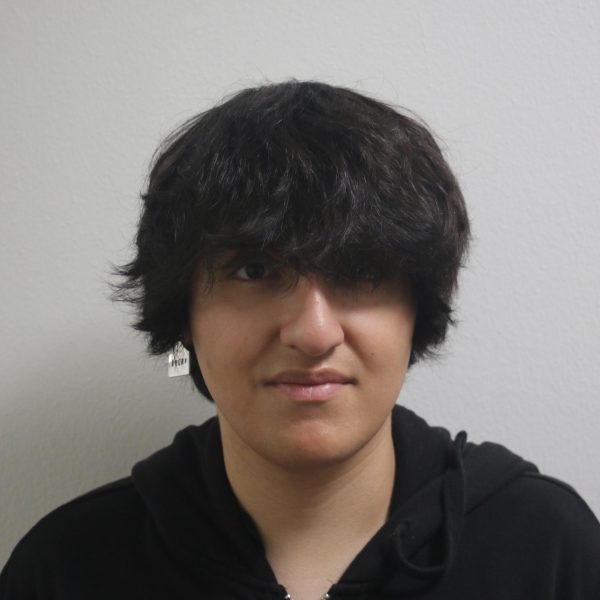DACA recipients rattled as program cast into limbo
November 4, 2022
Francisco Obregon’s parents illegally brought him to the U.S. when he was a child. The career and transfer specialist is allowed to work at Dallas College through the Deferred Action for Child Arrivals program. He is one of 600,000 immigrants protected from deportation through this program, but a recent ruling threw his future into uncertainty.
The U.S. Court of Appeals for the Fifth Circuit dubbed DACA unlawful in a partial ruling on Oct. 7, prohibiting the approval of new recipients. The court upheld the status of current recipients and sent the case to a lower court for further review. No dates have been announced.
Waiting with fear isn’t new to recipients – the program has been trapped in political turmoil since its passage.
“[DACA] is all we have,” Francisco Obregon said. “There is no path to citizenship, no green card, no path to anything.”
Francisco and his brother, Gilberto Obregon a KGNS sports anchor in Laredo are Dallas College graduates on DACA. Although their status remains, they’re worried for their brother, Miguel, who is unable to apply for the program now.
Unprocessed applications filed before the ruling are currently on hold – with no change in sight.
“[Miguel] is gonna graduate in May, so what’s going to happen after that?” Francisco Obregon said.
After the ruling, Dallas College Chancellor Justin Lonon expressed his support for DACA recipients in a blog post. The college has over 750 students protected by DACA as of Fall 2022, according to Multicultural Affairs.
Multicultural Affairs issued an awareness campaign for DACA, starting with an advocacy training led by Francisco Obregon on Oct. 25.
Dreamers Solidarity Day on Oct. 27 became the centerpiece of the campaign, an event where Dallas College members gathered around Eastfield and expressed their support for DACA recipients. The event ended with attendees making social media posts in solidarity with students in the program.
Although DACA students can obtain scholarships as well as state and local financial aid, immigration status narrows options and bars them from federal financial aid. Most have to pay out of pocket, including Francisco and Gilberto Obregon.
“Enrollment-wise…nothing changed,” Francisco Obregon said. “But I think motivation-wise, I feel that’s gonna decrease a lot once you graduate from college. You want to transfer and get a bachelor’s, but it’s too expensive. You don’t have any way to receive financial aid.”
In his statement, Lonon reminded students the ruling did not affect enrollment status. Recipients are still considered in-state students.
“If your DACA expires while you’re in school, you’re considered an international student, which leads to paying international student tuition,” Gilberto Obregon said.
DACA supplies protection from deportation through a work permit. Recipients are required to renew their status every two years, a cycle that involves legal fees and applications.
Students on DACA aren’t eligible for federal benefits, including FAFSA. Although Texas redirects recipients to TAFSA, a state-level financial aid program, the payout is a fraction compared with the federal level.
“Even if we wanted to take out a school loan, we’re unable to,” Francisco Obregon said.
Francisco Obregon’s DACA status temporarily expired in April 2021. Although he submitted his application on time, delays caused by the COVID-19 pandemic ran out the clock.
“Overnight, your dreams can go away, and you can stop working,” Francisco Obregon said.
Due to living in Laredo, a border city, Gilberto Obregon grapples with the reality that DACA is the only safeguard against deportation. South Texas is littered with immigration checkpoints upwards of 100 miles past the border.
“If my DACA expires and I try to go up north to cover something, I’ll be in the same situation like my brother,” Gilberto Obregon said.
Recipients lack a direct route to citizenship or permanent residency, and activists have pushed for citizenship since the program’s creation.
“It would be nice for DACA students if there was some kind of special route to become citizens,” LULAC adviser Alfonso Garcia said.
LULAC, or League of United Latin American Citizens, is a Hispanic civil rights organization. The group’s Eastfield presence has been shaken by legal blows to DACA and similar immigration programs.
As an immigrant, Garcia when advising the student-run organization. He used to lead DACA support campaigns with former Illinois Rep. Luis Gutierrez in Chicago.
“Hopefully we can see something by the end of his year and perhaps the next,” Garcia said.
The Biden Administration has shown its support for DACA by reinstating the program last year after the Trump administration failed to repeal it.
“DACA students are brilliant, talented, future leaders of this country,” Garcia said. “We need to provide the best resources for them – for instance, here at Dallas College.”
Where federal benefits don’t reach DACA recipients, Dallas College tries to supplement through student resources.
Francisco Obregon feels he can’t rest easy until a path to citizenship becomes available, but he finds comfort in doing what he can for Dallas College and its DACA recipients.
“Keep pushing because there’s somebody looking behind you,” Francisco Obregon said.





